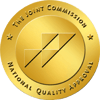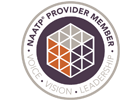Recovery is a journey filled with both triumphs and challenges. While celebrating milestones is essential, having a plan for navigating tough days can make all the difference. A sobriety toolkit is a personalized collection of resources and strategies to help you stay grounded, motivated, and focused on your goals. Here’s what to include in your toolkit to empower your sobriety journey.-3.png?width=672&height=480&name=(672%20x%20480%20px)-3.png)
1. Daily Affirmations
Positive affirmations are powerful tools for rewiring your mindset and building resilience. Craft a list of affirmations that resonate with your recovery goals, such as:
- "I am strong and capable of staying sober."
- "I deserve a healthy and fulfilling life."
- "I choose progress over perfection."
Write these affirmations in a journal, set them as reminders on your phone, or display them where you can see them daily. Repeat them to yourself, especially during moments of self-doubt.
2. Apps and Digital Tools
Technology can be a powerful ally in recovery. Consider downloading apps designed to support sobriety, mindfulness, and mental health. Some popular options include:
- Sober Grid: A social networking app that connects you with a supportive community.
- I Am Sober: Tracks your milestones and provides daily motivation.
- Calm or Headspace: For guided meditations and stress relief.
- MyStrength: Offers tools for building emotional resilience.
These apps can provide both accountability and a sense of connection, even on the go.
3. Support Contacts
Tough days often feel isolating, but you’re not alone. Keep a list of trusted contacts who can provide support and encouragement. This might include:
- A sponsor or mentor
- Close friends or family members
- Your therapist or counselor
- Recovery group peers
Having this list readily accessible ensures you can reach out when you need a listening ear or guidance. Asking for help takes courage and practice, call these trusted contacts regularly and develop these important relationships so when you have a thought to drink or use it will be easier to call and ask for help.
4. Grounding Techniques
Stress and cravings can be overwhelming, but grounding techniques can help you regain control. Include strategies such as:
- The 5-4-3-2-1 Technique: Identify 5 things you can see, 4 you can touch, 3 you can hear, 2 you can smell, and 1 you can taste.
- Breathwork: Practice deep, intentional breathing to calm your mind and body.
- Visualization: Picture yourself in a place of peace or success to redirect negative thoughts.
5. Inspiring Content
Fill your toolkit with resources that uplift and inspire you. This might include:
- Recovery-focused podcasts or audiobooks
- Motivational videos on YouTube
- A playlist of songs that boost your mood
- Books about personal growth, such as "The Four Agreements”, “You Can Heal Your Life” or "The Untethered Soul."
These can serve as reminders of your progress and potential.
6. Healthy Coping Tools
Having tangible items to help you cope with stress can be incredibly grounding. Consider including:
- A stress ball or fidget toy
- A journal for processing thoughts and emotions
- Essential oils, like lavender or eucalyptus, for calming aromatherapy
- A small piece of meaningful jewelry or a token that symbolizes your commitment to sobriety.
7. Physical Wellness Essentials
Your physical health plays a crucial role in your mental well-being. Incorporate elements that encourage self-care, such as:
- A reusable water bottle to stay hydrated
- Healthy snacks to stabilize blood sugar levels
- Comfortable shoes for a grounding walk or hike
- A yoga mat for stretching and mindfulness exercise
8. Emergency Reminders
Create a "break glass in case of emergency" list with key reminders for tough moments. For example:
- Why you chose sobriety
- The consequences of relapse
- Milestones you’ve achieved
- Goals you’re working toward
This list can act as a powerful motivator when you feel tempted or overwhelmed.
9. Community Connections
Participating in a recovery community, whether online or in person, provides accountability and encouragement. Include meeting schedules or links to online support groups in your toolkit. Knowing you have a place to turn can be a great comfort.
Building Your Toolkit Over Time
Remember, your sobriety toolkit is a living resource that evolves with you. Regularly assess what works and what doesn’t, and update it as needed. By equipping yourself with the right tools, you’re creating a safety net for tough days and building a foundation for long-term success.
What will you include in your sobriety toolkit? Start small and add items as you discover what resonates with you. With the right tools, you can face any challenge and continue thriving in your recovery journey.





